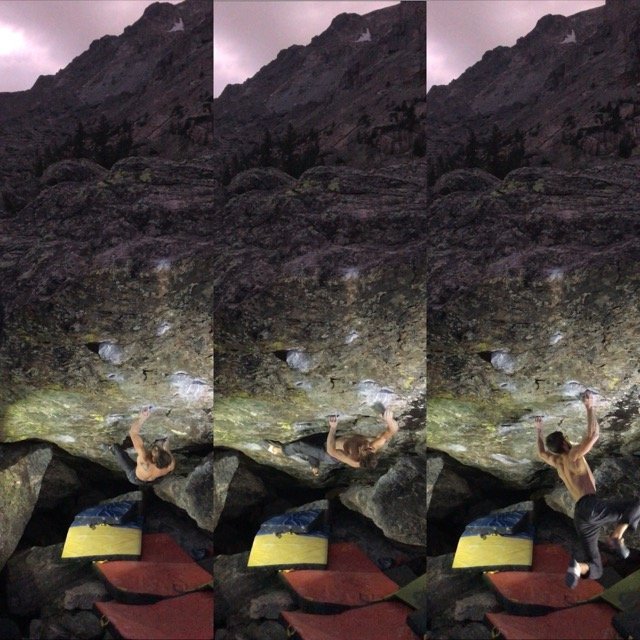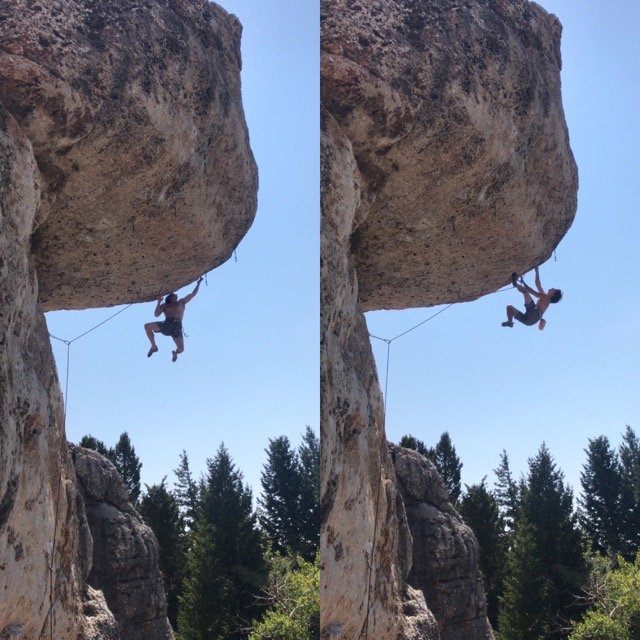Limitless Possibilities
If you want to be physically prepared for rock climbing, you need to concern yourself with the following components:
Hangboarding
Max Added Weight
Minimum Edge Depth
Repeaters
One-Arm Hangs
Recruitment
No-Hangs
Variations of holds and grip types within these methods.
Campusing (Campus Boarding)
Ladders
Doubles
Bumps
Weighted Campusing
Foot-On Campusing
Sloper Balls
1-5-9's
Campusing on Boulders
Peg Boarding
Limit Bouldering
Strength Training
Barbells
Kettlebells
Sport Specific
Bodyweight
Rings
Functional Training
Olympic Lifting
Targeted Hypertrophy (forearms)
Endurance Training
Aerobic Capacity
Aerobic Power
ARC-ing
Work Capacity
Working your Weaknesses
Strength Endurance
Projecting
Blood Flow Restriction Training
Circuit Training
Strength Circuits
Strength Endurance Circuits
Endurance Circuits
Density Circuits
Physical Assessments and Benchmarks
Body Tension
Training on Different Wall Angles
Antagonistic Exercises
Simulating your Project
Training Research
Mobility
Flexibility
Hydration
Nutrition
Periodization
Limit Bouldering
Injury Management and Prevention
Recovery Methods
Strength to Weight Ratio
Skin Maintenance
"Moonboard"-ing
Whatever the Pro’s are currently doing.
Progressive Overload
Overtraining
Undertraining
Hold Size
Hold Type
Move Size
Exercise Variability
Keeping things around long enough to work, but not so long that they stop working.
Volume-centric Workouts
Intensity-centric Workouts
Concentric-Only Training
Eccentric Overload
Isometrics
Session Length
Session Frequency
Heart Rate Monitoring
Breathing Patterns
Integrated Strength Training
Climbing Pace (Fast vs. Slow)
Dynamic vs Static
Contact Strength
Irradiation
Anti-Rotation Strength
In-Season Training
Deloading
Peaks
Valleys
Plateaus and How to ‘Break’ Them
Donut Consumption
Pinch Blocks
Absolute Strength to Speed Continuum
Effort
Cardio (Just kidding!)
Energy Leaks
Exercise Sequencing
Ring Finger A2 Pulleys
Strength Imbalances
Forearm Capillarization
You also need to concern yourself with the mental, technical, and tactical aspects of rock climbing. You know, the other three pillars of sports performance.
If there’s time, you should also attempt to have a life... Good luck!
This is exactly how it feels sometimes.
We live in a confusing time. In one minute, someone will say that training for rock climbing is still in its infancy, then five minutes later someone else will tell me they are so overwhelmed with training information that they don’t know where to start.
There are so many things on that list that you probably didn’t even read the whole thing, (I’m sorry if you did), or notice that I listed "Limit Bouldering" twice.

Or that #60 was "Donut Consumption."
There was a time when I judged information on training for climbing by how much new content it had. If I already knew about it, then it wasn’t important. I was guilty of confusing knowledge with understanding.
All the things on that list can be very useful to focus on - for the right people at the right times.***
But for most of us, most of the time, a lot of them end up as either filler or even detrimental. A distraction from what really matters.
If you were offered $1,000 for every protocol, exercise, or extra thing that you could take out of your training program, what would be left?
“In this age of information abundance and overload, those who get ahead will be the folks who figure out what to leave out, so they can concentrate on what’s really important to them. Nothing is more paralyzing than the idea of limitless possibilities.”
*** It's ALWAYS the right time for donuts.

Long-time friends Nate and Ravioli Biceps discuss lessons they’ve pulled from video gaming that can help inform our climbing.
I never thought I’d be recommending this, but some of y’all should be putting less effort into becoming technically better climbers.
Do you really have terrible willpower? Or are you surrounded by distractions and obstacles?
Giving artificially low grades to climbs increases their perceived value for our training and development. The more something is mis-graded the more we naturally want to prioritize it.
Discussion around grades can be so polarizing that many of us avoid the topic.
Climbing starts off as this self-feeding cycle that has you wishing you could climb seven days a week. What happens when this cycle stops bringing improvement though?
Use strength to leverage every other aspect of your climbing, not replace them.
If everything you do is a finger workout, then when do your hands get a chance to recover?
There is a common theme between a grilled cheese sandwich and good training advice.
The more accurately we define our problems, the more approachable it will feel to find solutions.
Maybe the most understated way of getting better is to build fallback successes into your plan.
How much time should climbers spend becoming more well rounded vs. improving their strengths?
As cool as assessments and standards are, they can easily leave people settling for “good enough” when they have the potential to do much more.
Being able to quickly recognize familiar sequences is a crucial ingredient to harder climbing.
It’s far more comfortable for us to blame ignorance for our lack of progress than it is to blame our own efforts.
Once you learn the power of good tactics it can be hard to step away from them.
Of all the people that I spoke with this year who were stuck in plateaus, many of them had the same thing in common: they climbed and trained alone.
The belief that you are getting better at climbing is one of the most important ingredients in actually getting better at climbing.
How many times have you gone up a route and felt overwhelmed, only to look back and realize that it’s not as intimidating as it initially seemed?
Most of us go into a training plan or an outdoor season with an expectation, but expecting results can make us brittle when problems arise.
Whenever there is a training article online or some tidbit of knowledge on social media, it’s important that you consider the context.
At a certain stage in climbing, the hand and foot beta you use stops being the deciding factor in whether or not you are successful.
The intermediate climber’s problem with perception starts to arise when they can’t recall all of the solutions they have attempted during the problem solving process.






























Inspiration is intoxicating, but often fades as quickly as it shows up.